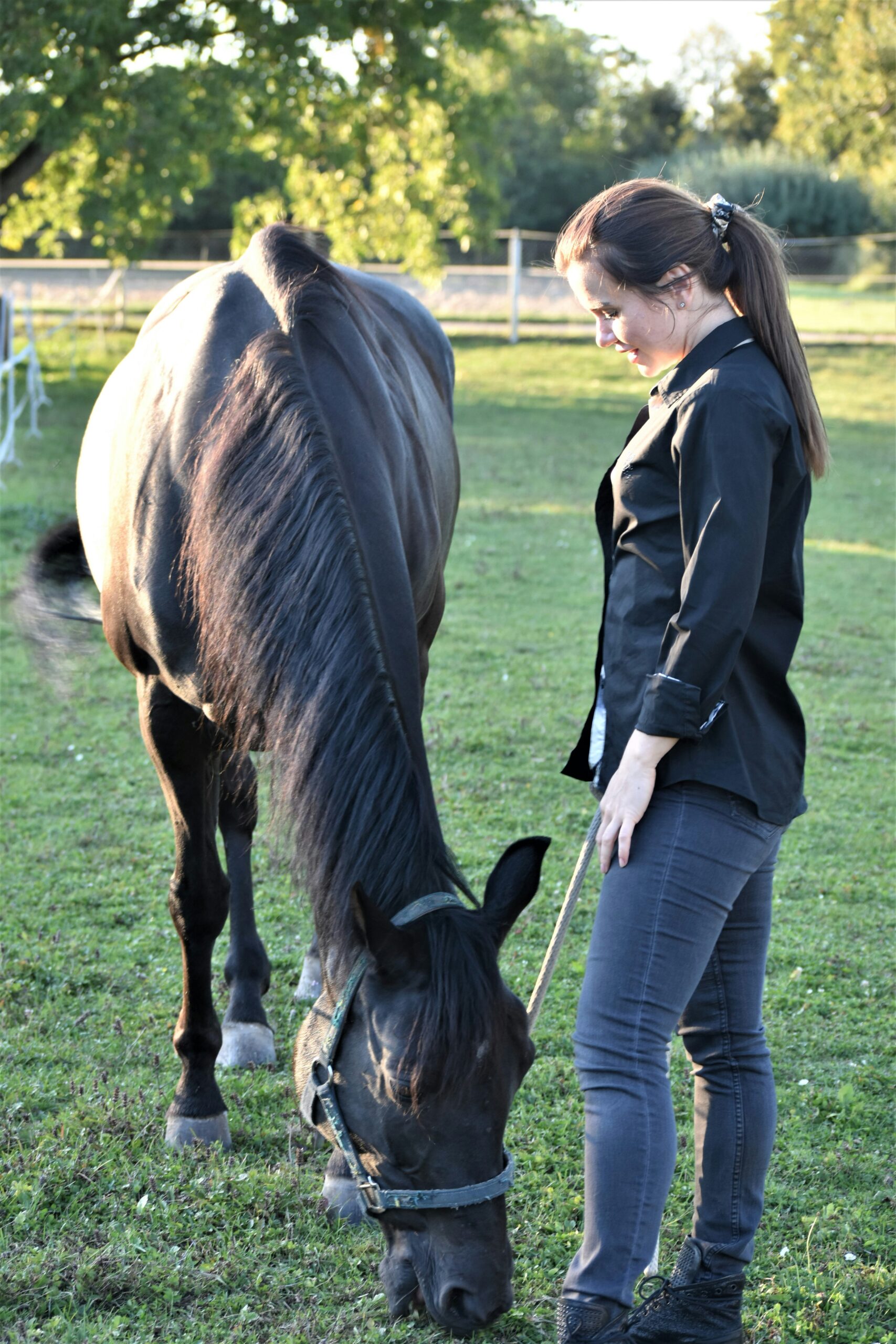Introduction to the Concept
Transforming a hobby farm into a thriving business is an increasingly popular endeavor for many passionate about agriculture. For hobby farmers, the allure of sharing their love for farming while generating an additional income stream is a significant draw. Whether it’s cultivating organic produce, raising livestock, or diversifying with agritourism, the transition from hobbyist to entrepreneur opens up a wealth of opportunities.
The primary motivation often stems from a deep-rooted passion for farming and a desire to make it more than just a pastime. By leveraging their knowledge and enthusiasm, many hobby farmers discover they can successfully expand their operations into profitable ventures. Another compelling reason to embark on this journey is to create a steady and reliable source of additional income. This extra revenue can go a long way in supporting families, funding other projects, or simply enhancing financial security.
Moreover, transforming a hobby farm into a business aligns closely with the growing trend towards sustainable living. Sustainable farming practices not only contribute to environmental preservation but also attract a significant market of eco-conscious consumers. The shift from hobby farming to commercial operation also presents the chance to engage with the community, foster local food systems, and promote healthy eating habits.
Beyond financial and environmental benefits, transitioning to a hobby farm business can cultivate a deeper sense of fulfillment and satisfaction. The ability to turn one’s passion into a livelihood allows for a unique blend of personal joy and professional achievement. Contrary to the often romanticized notion of farming, this transition requires strategic planning, hard work, and a willingness to embrace new challenges. Successfully navigating this path can transform a modest hobby farm into a thriving enterprise that stands as a testament to the owner’s dedication and entrepreneurial spirit.
Assessing the Viability of Your Hobby Farm
Turning your hobby farm into a thriving business requires a thorough assessment of its viability. The first crucial step involves evaluating the land size. The amount of available land directly influences the scale at which you can operate. Larger plots provide opportunities for diversifying crops and livestock, while smaller parcels necessitate more efficient use of space.
Next, analyze the existing infrastructure. Identify what can be utilized in your business operation and what needs improvement or expansion. Essential elements include storage facilities, irrigation systems, fencing, and housing for livestock. Ensuring that these structures are up to par can prevent significant future expenditures.
Climate will also play a pivotal role in determining the types of crops and livestock suitable for your farm. Research historical weather patterns and consult agricultural extension services to gain insights into the local climate. This information will help you select crops and livestock that thrive in your region, thus improving your chances of success.
Soil quality is another fundamental factor. Conducting soil tests will help you assess its composition, nutrient levels, and pH balance. Many agricultural extension services offer soil testing at minimal or no cost. The results will enable you to amend the soil appropriately, enhancing crop yields and overall farm productivity.
Market proximity is a critical consideration when planning to convert your hobby farm into a business. Being close to markets where you can sell your goods can significantly reduce transportation costs and logistical challenges. Examine nearby farmers’ markets, grocery stores, and restaurants to understand the demand for local produce and livestock.
Leverage available tools and resources such as business feasibility studies to make informed decisions. These resources can provide financial projections, market analysis, and risk assessments. Utilizing them will help you gauge both the potential benefits and challenges involved in scaling your hobby farm into a commercial operation.
Creating a Business Plan
Creating a comprehensive business plan is an essential step in transforming your hobby farm into a thriving enterprise. A well-structured plan provides a roadmap for growth and helps in securing necessary financing, thus catering to both short-term needs and long-term goals. The primary components of a business plan tailored for a farm encompass market analysis, financial projections, operational plans, and risk management strategies. Each of these elements plays a critical role in the farm’s potential success.
Market Analysis
The initial phase of your business plan should involve an in-depth market analysis. Understanding the dynamics of the agricultural market, identifying your target audience, and analyzing competitors will help you carve out a niche for your farm. This section should include information on consumer preferences, pricing strategies, and market trends, enabling you to make informed decisions that align with market demands.
Financial Projections
Next, financial projections are a crucial aspect of your business plan, serving as a financial blueprint for your farm. Outline your anticipated income, expenses, and profitability over the next 3-5 years. Incorporate detailed budgets for various farm activities, cost estimations for equipment and supplies, and projected cash flows. This data can demonstrate the farm’s financial viability to potential investors and lenders, thereby facilitating the acquisition of desired funding.
Operational Plans
Operational plans entail the day-to-day functioning of your farm. This section should describe your production processes, including planting, harvesting, and distribution methods. Detail your workforce requirements, roles, and responsibilities. Consider incorporating modern technology and sustainable practices to enhance efficiency and productivity. Clear operational strategies ensure smooth execution and scalability of daily activities.
Risk Management Strategies
Risk management is another pivotal component. Identify potential risks your farm might face, such as adverse weather conditions, pest infestations, or market fluctuations. Develop contingency plans outlining mitigative measures, such as crop insurance, diversification, and emergency funds. Effective risk management strategies can shield your farm from unexpected disruptions and maintain business continuity.
A robust business plan not only guides your farm’s growth but also demonstrates your commitment and preparedness to financial institutions, investors, and other stakeholders. Equip your hobby farm with a comprehensive business plan to transition smoothly into a prosperous business venture.
Funding Your Farm Business
Turning your hobby farm into a thriving business requires not only passion and hard work but also a solid financial foundation. Funding is a critical aspect, and there are various financing options available to support your agricultural endeavors. Understanding these options will help you secure the necessary capital to scale your operations effectively.
Traditional loans are a primary source of funding for many small farmers. Commercial banks and agricultural lenders often provide loans tailored to the needs of farm businesses. These financial products can cover costs ranging from purchasing equipment to expanding livestock herds. It’s essential to prepare a detailed business plan and financial projections when applying for these loans, as lenders will scrutinize your ability to repay the funds.
Grants and subsidies are another essential avenue to explore. Governments and private organizations offer an array of grants specifically for small farmers. These funds typically come with specific requirements and are often aimed at supporting sustainable farming practices, innovation, and conservation efforts. Programs like the USDA’s Farmers Market Promotion Program (FMPP) and the Sustainable Agriculture Research and Education (SARE) program are notable examples. Dedicating time to research and prepare well-documented applications can significantly increase your chances of receiving these funds.
Innovative funding options, such as crowdfunding and agricultural investment platforms, have gained popularity in recent years. Crowdfunding allows you to raise small amounts of money from a large number of people, usually via online platforms like Kickstarter or Indiegogo. This method not only secures funding but also helps you build a community around your farm business. Agricultural investment platforms, on the other hand, connect farmers with investors seeking to support agricultural projects. These platforms can provide substantial funding while allowing investors to share in the potential profits of your farm business.
Regardless of the funding source you pursue, preparing a strong loan or grant application is crucial. Highlighting a clear and compelling vision for your farm, supported by robust financial data, will instill confidence in potential lenders or grantors. Detailed market analysis, sound financial strategies, and tangible goals will make your application stand out. Leveraging professional advice from financial advisors or agricultural consultants can also enhance your application’s effectiveness, paving the way for your hobby farm to evolve into a flourishing business.
Marketing and Sales Strategies
Running a successful hobby farm necessitates a well-thought-out marketing and sales approach. Various direct-to-consumer sales methods can significantly contribute to this effort. Farmers’ markets, for instance, offer not just a marketplace but also an opportunity to create a loyal customer base. Participating regularly in local farmers’ markets allows farm owners to build personal relationships with consumers, gather immediate feedback, and adjust offerings based on demand.
Community Supported Agriculture (CSA) programs are another effective sales strategy. By encouraging customers to purchase seasonal shares in your harvest, you establish a steady income stream and reduce the risks associated with farming. CSAs foster a sense of community and trust, ensuring that your clientele feels invested in your farm’s success.
Online sales represent an increasingly crucial component of farm marketing strategies. Establishing an e-commerce platform allows you to reach a broader audience, beyond the limits of your geographical location. This can be accomplished through your website, social media platforms, or partnering with online marketplaces dedicated to local food and products.
Effective branding plays an essential role in distinguishing your farm products from the competition. A well-crafted brand narrative can convey the unique aspects of your farm, whether it’s sustainable farming practices, heirloom varieties, or organic certification. Consistent branding across all platforms, including product packaging, social media, and your website, helps in establishing a solid identity and trust with your consumers.
A robust social media presence is indispensable in today’s digital age. Platforms such as Instagram, Facebook, and Twitter offer relatively low-cost avenues to engage directly with your audience, share your farm’s story, and promote your products. Regular posts, high-quality images, and engaging content can drive traffic to both your online store and physical sales locations.
Building relationships with local restaurants and retailers can also expand your sales opportunities. Many chefs and store owners prioritize sourcing fresh, local ingredients, creating a mutually beneficial partnership. Supplying to restaurants and local stores not only increases your revenue streams but also serves as excellent marketing when consumers see and taste your products in reputable establishments.
Scaling Operations
Transitioning from a hobby farm to a thriving business involves strategic decisions to scale operations sustainably. As production increases, it’s crucial to manage the growth systematically to ensure both effectiveness and efficiency. One primary aspect to consider is investing in more efficient equipment and modern technology. Advanced machinery and tools can automate repetitive tasks, reducing manual labor and increasing overall output. For instance, automated irrigation systems, modern tractors, and high-efficiency planting tools can considerably boost productivity.
Another essential element in scaling is the potential need to hire additional help. As operations expand, managing increased production levels might become overwhelming for a small team. Hiring skilled labor can not only alleviate the workload but also bring in specialized expertise which can enhance various aspects of the farm’s operations. Ensure that recruitment is aligned with the farm’s values and goals to maintain a cohesive work environment.
Quality control and consistency become paramount as the farm grows. Implementing standardized procedures and protocols can help maintain product quality. Regular training sessions for employees on best practices and new technologies will ensure everyone is aligned with the farm’s quality standards. Investing in quality assurance programs or consultants can provide the expertise needed to develop rigorous quality control measures, ensuring that scaling does not compromise the integrity of the produce.
Lastly, maintaining a sustainable approach as you scale is vital. This includes adopting environmentally friendly practices such as sustainable farming techniques and waste-reduction measures. Not only does this support the long-term health of the farm, but it also appeals to an increasingly eco-conscious consumer base. Balancing growth with sustainability ensures that the farm remains productive and profitable for years to come.
Managing Legal and Regulatory Issues
Turning a hobby farm into a thriving business requires careful navigation of various legal and regulatory frameworks. One of the initial steps is to comprehend zoning laws. Zoning regulations govern land use and can significantly impact what farming activities are permitted. Ensuring compliance with local zoning laws is paramount to avoid penalties and interruptions to your operations. Engaging with local planning departments early on can provide clarity and prevent future setbacks.
In addition to zoning laws, obtaining the necessary permits is crucial. Depending on the scale and nature of your hobby farm business, you may need multiple permits, from agricultural to environmental ones. Common permits for farming businesses include water use permits, waste management permits, and livestock permits. Consulting with local authorities and staying informed about the specific requirements for your type of farming can ease this process.
Food safety regulations represent another critical area of compliance. If your hobby farm business involves the production and sale of food products, adhering to food safety standards is non-negotiable. These regulations aim to ensure that food products are safe for consumption and are crucial for establishing consumer trust. Familiarize yourself with relevant food safety guidelines and consider obtaining certification from recognized bodies if selling food items.
For those interested in organic farming, attaining organic certification is a key step. Organic farming must adhere to strict guidelines that govern pesticides, fertilizers, and overall farm practices. The certification process can be intricate, involving detailed record-keeping and periodic inspections. However, the certification can open up new markets and appeal to health-conscious consumers.
Labor laws are another essential consideration. Whether hiring seasonal workers or full-time staff, understanding labor regulations, including wage requirements and working conditions, is fundamental. Non-compliance with labor laws can result in severe penalties and impact the sustainability of your business. Consulting with labor law experts can provide invaluable guidance.
Overall, navigating the legal and regulatory landscape is complex but critical to transitioning your hobby farm into a successful business. Seeking advice from legal and regulatory professionals can help ensure that all requirements are met, allowing you to focus on growing your farming enterprise efficiently and lawfully.
Maintaining Work-Life Balance
Successfully transforming a hobby farm into a thriving business requires managing numerous responsibilities, which can often blur the lines between work and personal life. To achieve a sustainable work-life balance, effective time management is paramount. Start by creating a structured schedule that dedicates specific blocks of time to various tasks. Establishing a routine not only enhances productivity but also ensures that personal time is safeguarded against the encroachments of work-related duties.
Delegation is another critical strategy in maintaining equilibrium. A farm business involves diverse activities, from animal care to crop management and marketing. Share these responsibilities with family members, employees, or even seasonal help. By building a capable team, you can reduce the personal burden and focus on strategic decisions that drive the business forward.
Setting boundaries between work and personal time is equally crucial. Designate specific areas of your homestead as work zones and others as personal or family spaces. This physical demarcation helps in mentally switching off from work duties during personal time. Additionally, be disciplined about adhering to working hours. Using tools like time-tracking apps or setting alarms can remind you when it’s time to stop working.
Self-care cannot be overstressed when running a farm business. Regular exercise, sufficient sleep, and nourishing meals are foundational to maintaining physical health and mental well-being. Incorporate activities that you enjoy and that help you relax, be it reading, crafting, or taking a walk in nature. Prioritizing self-care not only enhances personal well-being but also equips you to handle farm operations more efficiently and passionately.
Lastly, remember the love for farming that ignited this journey. Avoiding burnout requires stoking that initial passion and finding joy in daily activities. Through intentional time management, delegation, boundary-setting, and self-care, you can maintain a healthy work-life balance that sustains both your business and your personal well-being in the long run.
Auto Amazon Links: No products found.



